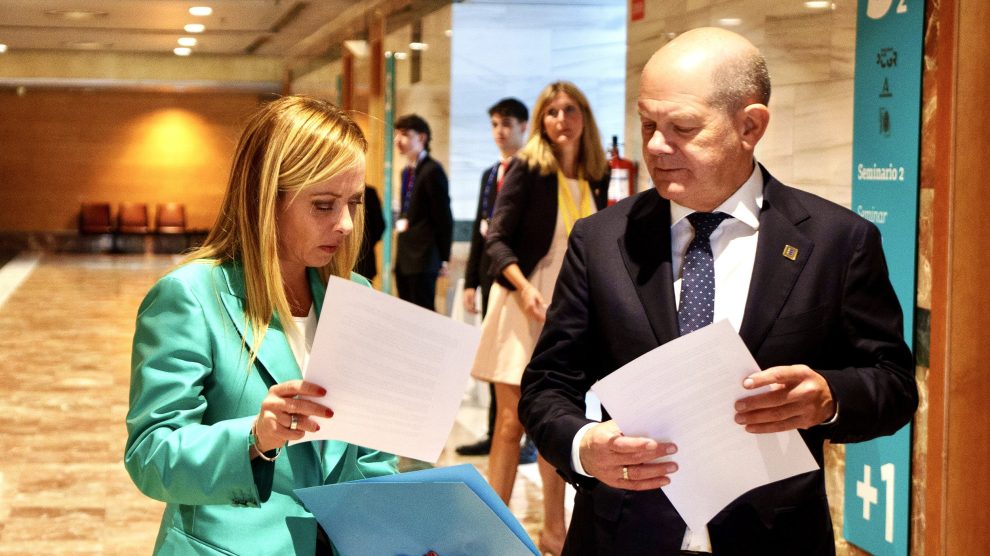Berlin converges on Rome’s migration approach. Italian Prime Minister Giorgia Meloni and German Chancellor Olaf Scholz displayed unity of intent in tackling the migratory issue, following the latter’s step back that ended a diplomatic dispute between the two countries. The two took part in a bilateral meeting during the informal European Council in Granada, Spain, where the issue of migration was front and centre.
- Berlin and Rome settling their differences brought about the qualified majority to pass the EU’s reformed Migration Pact, which Hungary and Poland strongly opposed.
- Consequently, joint vetoes from Budapest and Warsaw made EU leaders drop the section on migration from the summit’s conclusions.
“Work together, not against each other.” That’s the line Chancellor Scholz fed the press with regards to cooperating with PM Meloni, emphasising that the two had agreed to tackle the issue with “pragmatism” now and in the future – as the leading German newspaper FAZ had suggested on Thursday. He is “perfectly aware that the strategy proposed by Italy is the only effective one,” remarked the Italian PM.
- She also said that more funds for Africa must be made available in the EU budget, stressing the need to “build a completely different partnership” with African countries.
That goes for Tunisia too. Speaking to the press, PM Meloni said that Chancellor Scholz supports the work Rome has done with Tunis, which was instrumental in closing the EU-Tunisia pact. “He is aware that it is the only work that can give serious results. Everyone says that that work must be replicated in other countries. He told me that we must go ahead.”
- Disbursement of EU funds for Tunis as per that pact is currently frozen after President Kais Saied appeared to reject them on Tuesday. Still, the Italian PM said on Thursday that she believes he had spoken “mainly to his public opinion” – albeit in a “somewhat assertive tone.”
- Stressing the need to cooperate with nations such as Tunisia, she expressed her trust “that we will move forward” and “work on a real strategic partnership, also with the help of the Commission.”





